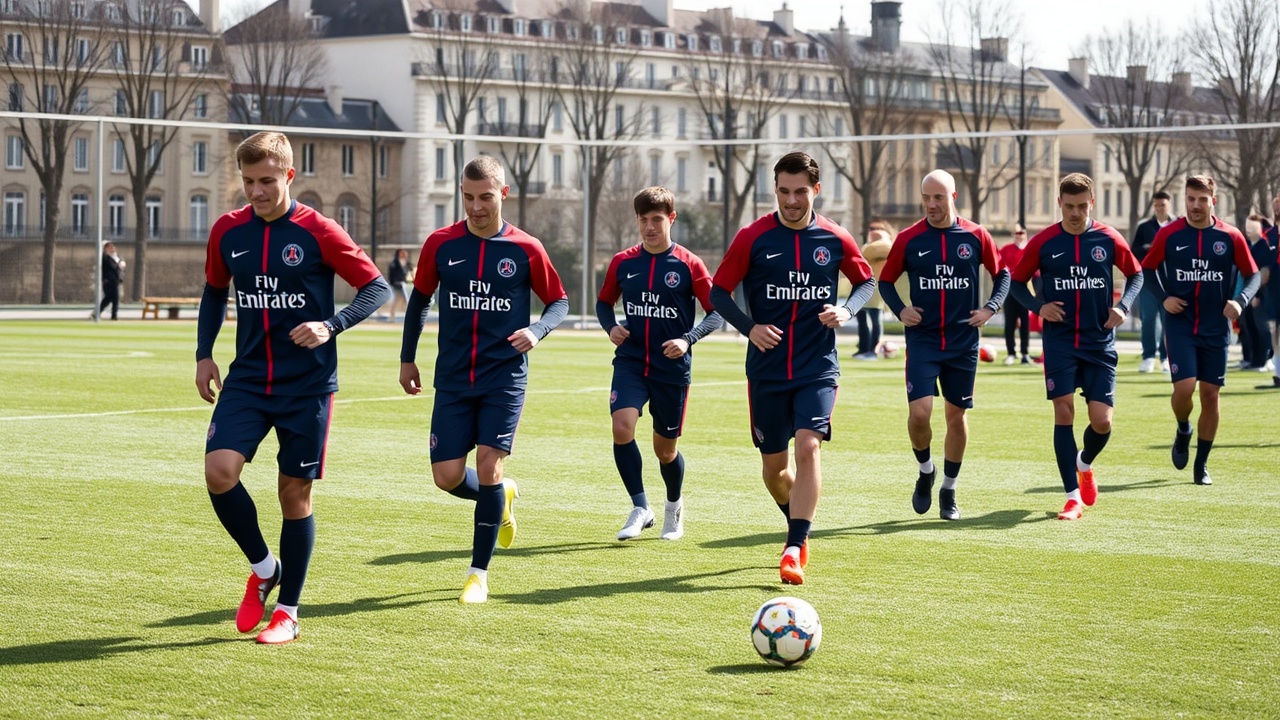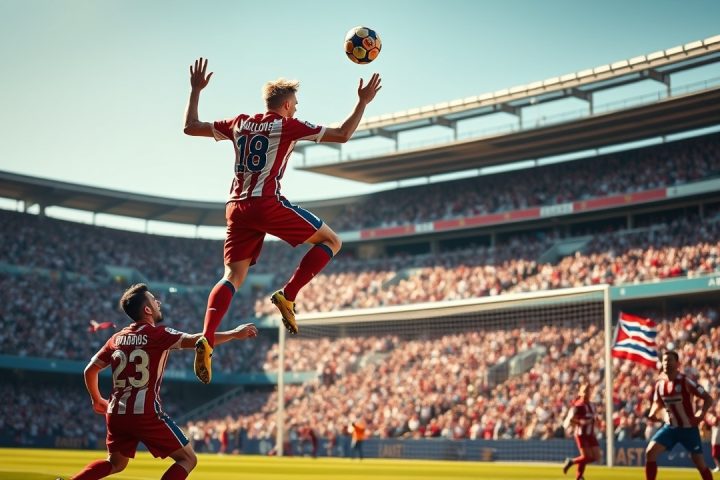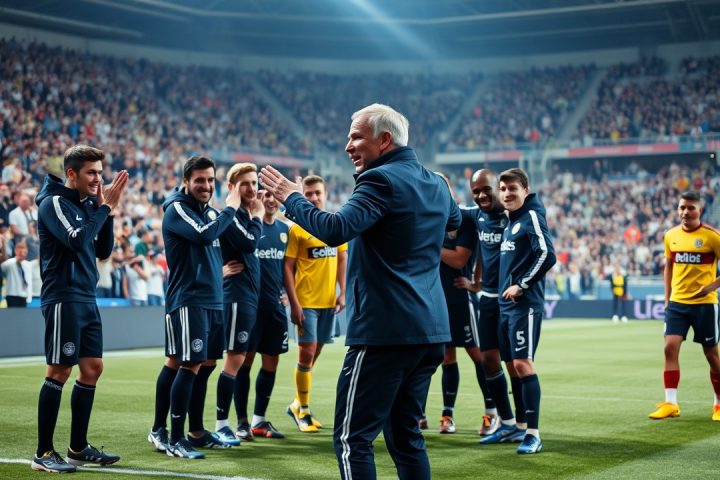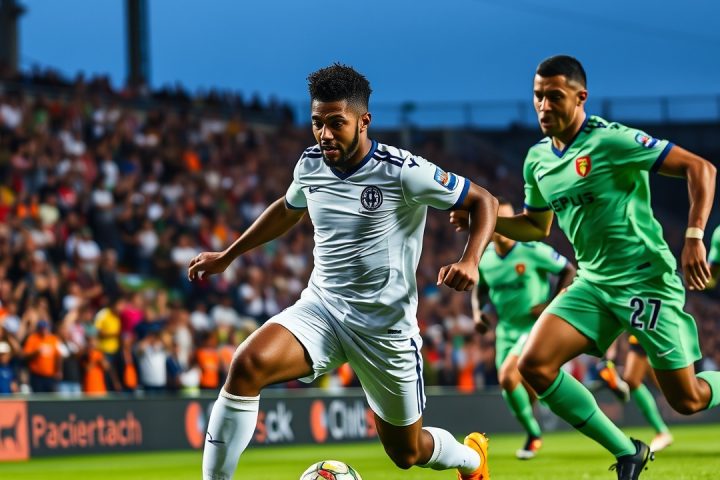Paris Saint-Germain’s Club World Cup Journey
Paris Saint-Germain kicked off their Club World Cup journey in California, not far from Hollywood, perfectly reflecting the theatrical ups and downs of their previous season. In the sweltering 30-degree Celsius (86 degrees Fahrenheit) heat, just days after their impressive 5-0 victory over Inter Milan in the Champions League final, PSG faced a challenge: maintaining their usual high-intensity play without succumbing to fatigue.
Strategic Challenges Against Atletico Madrid
Historically, Atletico Madrid offered a successful approach against PSG; they were one of the few teams to score a victory at the Parc des Princes last season, clinching a surprising 2-1 win. Notably, PSG’s flexibility on the field is one of their greatest assets. Ousmane Dembele’s absence at the forefront left a significant gap in their attacking framework, impacting the effectiveness of their wingers and full-backs.
“Adapting was essential,” noted Senny Mayulu, a key player who contributed to PSG’s scoring in the final and further in the match against Atletico.
His acknowledgment of the weather could easily extend to their tactical shifts. PSG typically relies on a game built around pressing, possession control, and striking counter-attacks, showcasing their quality through what they dubbed “walking football” during this encounter.
Midfield Dynamics and Challenges
“It was tough out there,” expressed midfielder Vitinha post-match, mentioning the difficulties posed by the weather—particularly for Atletico, who often found themselves chasing possession. “I felt exhausted,” he added, noting his flushed face from the heat.
Vitinha played a pivotal role in the midfield, sometimes dropping deeper to support the defense while allowing Nuno Mendes to surge forward, creating dual threats on the wings with Achraf Hakimi mirroring this on the opposite flank.
Defensive Strategies and Possession Play
Atletico’s strategy involved a compact defense, transitioning into a 6-3-1 formation when the need arose, but they struggled with the pace PSG displayed in their build-up play. Luis Enrique, PSG’s coach, remarked in his post-match comments about the challenges posed by hot weather for European teams, noting,
“It’s tough to sustain high performance for the full 90 minutes here.”
Against Atletico, PSG demonstrated their passing prowess, completing a staggering 817 passes compared to Atletico’s 275 while executing only a modest ten crosses. They also had no offside calls and maintained a thoughtful approach by minimizing distances between players.
Statistics reveal Atletico’s defensive struggles, with them only managing three interceptions, a testament to both Diego Simeone’s cautious outlook and the inherent difficulties in defending against PSG’s dynamic attacking format. Idle moments could easily lead to a midfielder making a decisive pass or a winger exploiting space.
Goals and Adaptability
PSG’s first goal against Atletico stemmed from an extended possession, emphasizing the team’s philosophy of defending through ball control. Following a turnover that forced Atletico’s Jan Oblak into indiscriminately kicking the ball forward, PSG regained control, built play from the back, and eventually created a scoring chance.
The sequence of play involved intricate passing that found its way back to their goalkeeper Gianluigi Donnarumma before changing sides of the field and ultimately leading to a sharp move that allowed Fabian Ruiz to score from the edge of the box after Atletico’s defense collapsed under pressure.
Pre-match comments from Atletico’s defender Cesar Azpilicueta conveyed the challenge of facing a team like PSG: “They thrive with the ball, presenting a unique challenge as you can’t afford to lose your focus.”
This mode of play helped PSG maintain energy throughout the game, showcasing their ability to adjust, even in oppressive conditions.
Looking Forward
While their performance may not be worthy of the silver screen, it exemplified PSG’s remarkable adaptability on the pitch. As reporters questioned Luis Enrique regarding the team’s prospects following their Champions League triumph, he hinted at a new beginning:
“A fresh chapter has begun, emphasizing the need to continually evolve.”
This continues a broader discussion on how football clubs like PSG balance skillful gameplay with tactical adaptations in the face of varying circumstances, both on the field and in environmental conditions.




